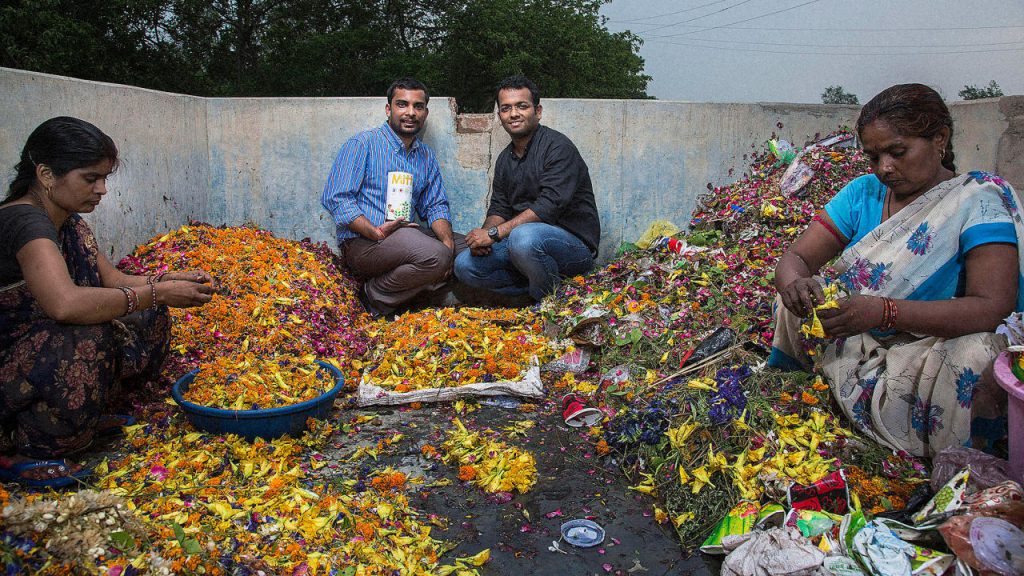Hindus offers flowers to deities during worship. Lots and lots of flowers. Every year, some 800 million tons of blossoms–red roses, yellow marigolds, prickly xanthiums–are deposited at the nation’s temples, mosques and sikh gurudwaras, creating a colorful, but tricky waste problem.
Because the flowers have been used for worship, they’re sacred, and therefore can’t be just sent to landfill, explains Ankit Agarwal, an Indian entrepreneur. Hindu temples often put the spent flowers into the River Ganges or nearest river.
“When we began in May 2015, everyone thought we were mad,” Agarwal says, “No-one had seen anything come out of flower used before and they were like ‘Oh, you really think you’re going to do something with that?’”
Flower pickers are a key part of the operation. Helpusgreen pays these pickers to sort the flowers in their different types while taking out unwanted cup holders and garland strings. Agarwal says the pickers–mostly women of lower castes–normally earn about 10 rupees a day (about 15 cents) but now get at least 150 rupees (more than $2).
“Rarely you get social enterprises that have revenues and that are in profit,” Agarwal says. “Everyone says eventually they’ll make money, but we’re doing it. And we’re touching lives of people at the bottom of the pyramid. We find that their confidence level improves. Before this, their confidence level was zero.” Agarwal says Helpusgreen had revenues of $43,210 last year and that profits reached 27%.
Helpusgreen convinced the temples and mosques to let them have the flowers by claiming that the flowers would, in a sense, be used for sacred purposes. Incense sticks, which are normally made of coal, are part of Hindu ritual, while the soaps are used for purification. The sticks are sold in paper infused with tulsi (holy basil) seeds, getting around another disposal problem (see the video here).
“In India, images of gods are used on incense products to boost sales,” Agarwal says. “People find it very tough to throw the packets in the dustbin because of the image. They tend to hoard them or leave them in the river or at a temple. With our packaging, once they’ve used the product, they can sow the paper in the ground [and grow the plant].”
Agarwal was recently in New York, taking part in this year’s Echoing Green fellowship. The award comes with a two-year stipend worth about $90,000–money that Agarwal plans to use for further expansion.

